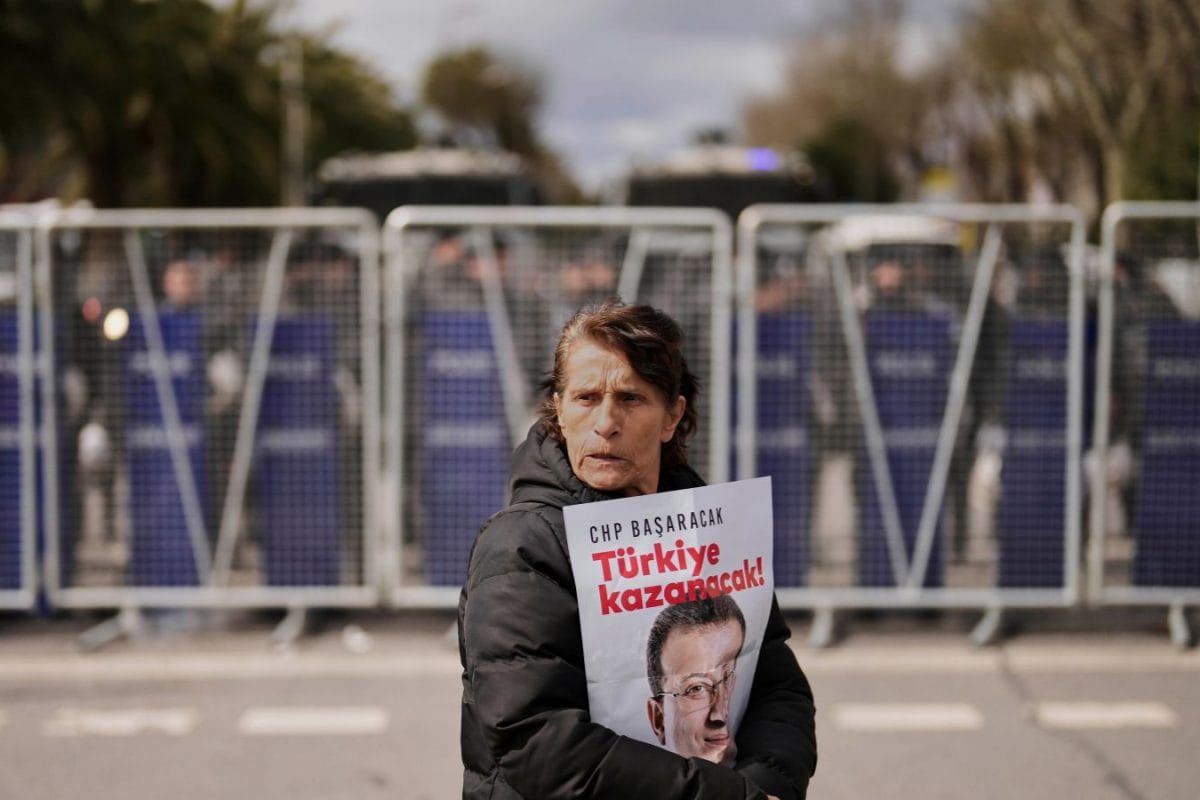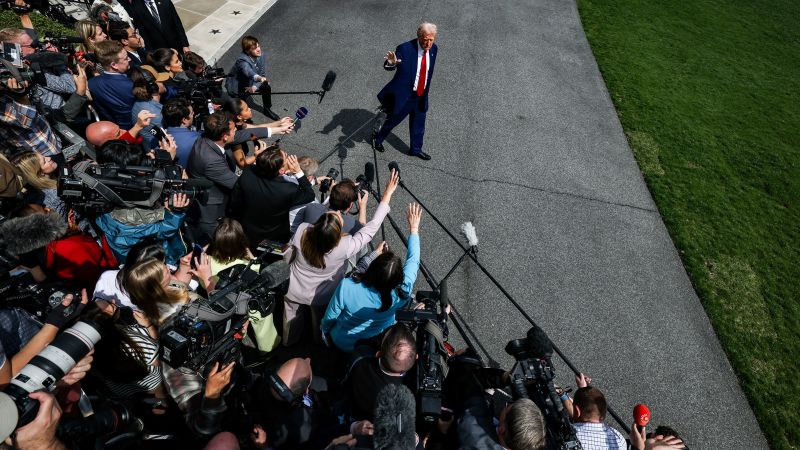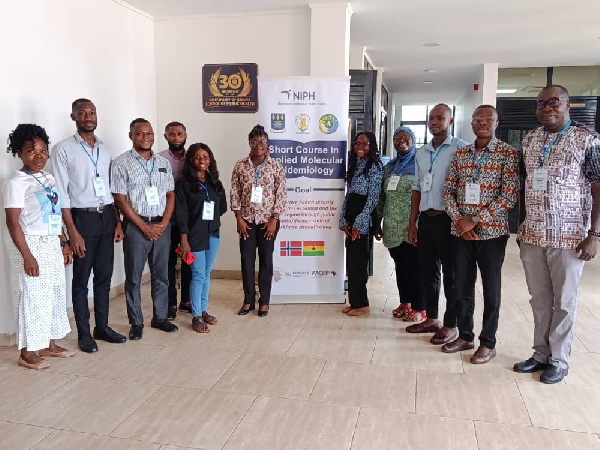
The arrest of Istanbul Mayor İmamoğlu marks yet another episode in President Erdoğan’s systematic campaign to dismantle political opposition and solidify his authoritarian grip on Türkiye The presidential elections in Türkiye may be three years away, but President Recep Tayyip Erdoğan seems to have already fired his first salvo. On March 19, his government arrested Istanbul Mayor Ekrem İmamoğlu, a prominent opposition figure of the Republican People’s Party (CHP), on allegations of corruption and terrorism. The action came just days before the party was set to formally approve his nomination as its presidential candidate for the 2028 elections, which it did on March 24, where he is now expected to challenge President Erdoğan.
With a Turkish court formally endorsing İmamoğlu’s detention pending the conclusion of a trial, the move has provoked widespread protests and nationwide anti-government demonstrations, resulting in the mass detention of thousands over the past week. Such an action against a sitting mayor of the country’s largest metropolis exemplifies a well-established pattern in Erdoğan’s enduring campaign of political consolidation. It also highlights İmamoğlu’s rise as a credible challenger to the incumbent president.

Furthermore, it demonstrates the Erdoğan government’s deliberate weaponisation of the judiciary and administrative apparatuses as instruments to neutralise political opponents and suppress dissent, symbolising Türkiye’s descent into full-blown authoritarianism. Erdoğan, often regarded as the poster boy of Islamist politics in Türkiye, has maintained an unrelenting dominance over the country’s political landscape for more than two decades. His political journey began as a moderate conservative affiliated with the Islamist Welfare Party, which was banned in 1986 on charges of contravening the constitutional principles of secularism.
Erdoğan’s first significant foray into political power came in 1994 when he was elected mayor of Istanbul, a position deemed one of the most influential in the country. Subsequently, in 2001, he established the Justice and Development Party (AKP), an Islamist political party seen as a successor of the Welfare Party. He won his inaugural presidential victory in 2003 and has since retained his grip on power, serving interchangeably as prime minister and president and solidifying his stature as a formidable political figure in Türkiye’s contemporary history.
What defines Erdoğan’s political journey is his unwavering ideological vision of transforming Türkiye into a homogenous society configured by the principles of political Islam, akin to what the international Muslim Brotherhood espouses across the Arab world, wherein the political opposition is either systematically suppressed or effectively marginalised. However, in his initial years, Erdoğan presented himself as an anti-military and pro-democracy leader, earning support from sections of Left-wing and liberal circles, as well as its Western neighbours, by enacting legal reforms that aligned Türkiye’s legal framework with the democratic norms of the European Union. Having garnered Western backing, he gradually dismantled the secular military-dominated establishment by orchestrating politically motivated trials under the pretext of countering alleged establishment attempts to undermine his authority, including Operation Sledgehammer, with these purges allowing Erdoğan to eliminate dissent and consolidate power.
Interestingly, throughout his rule, Erdoğan has consistently used the judiciary as a principal instrument in his systematic campaign against opposition parties, political leaders, and dissenters. The ongoing prosecution of İmamoğlu exemplifies this tactic. Notably, during his initial decade in power, Erdoğan relied heavily on prosecutors and judges affiliated with the Gülen network, led by the influential Muslim scholar Fethullah Gülen, to conduct a series of politically motivated trials.
Once Erdoğan had effectively consolidated power, he turned against Gülen and his followers. In the mid-2010s, he initiated sweeping purges targeting individuals associated with the Gülen movement across various governmental sectors. This repression intensified following the failed 2016 coup attempt, which the Turkish government attributed to the Gülenist military factions.
The subsequent crackdown led to the mass dismissal, imprisonment, and persecution of thousands of officials, including senior military personnel, effectively extinguishing the movement’s influence within the state apparatus and consolidating the power with Erdoğan. One of the most significant actions in President Recep Tayyip Erdoğan’s consolidation of power was the 2017 constitutional referendum, which fundamentally changed Türkiye’s governmental structure, transitioning it from a semi-presidential system to an executive presidential regime, besides altering the elections of the Supreme Board of Judges and Prosecutors and the Parliament. This restructuring centralised extensive, largely unaccountable authority in Erdoğan’s hands, fostering a political persona reminiscent of an Ottoman Sultan.
Complementing this domestic power consolidation, Erdoğan strategically courted Islamist constituencies beyond Türkiye’s borders, endeavouring to assert his leadership within the Muslim world. Scholars and analysts have widely considered this ideological and geopolitical ambition as an effort to advance a form of neo-Ottomanism, seeking to revive Türkiye’s historical influence under the symbolic mantle of its imperial past. Despite initial promises of economic rejuvenation, Erdoğan’s two-decade rule has been marked by a sustained decline in Türkiye’s financial stability, placing severe burdens on the population.
A particularly striking indicator of this economic deterioration is the country’s inflation rate, which surged from 8.55 per cent in October 2019 to a staggering 85 per cent in October 2022. Presently, the inflation rate remains over 45 per cent, thereby severely affecting the livelihoods of citizens across all socio-economic strata.
This prolonged economic downturn has been further compounded by Erdoğan’s adherence to unorthodox and archaic economic policies. Experts had long warned that his insistence on lowering interest rates against inflationary pressures would push the economy beyond the point of recovery. Although Erdoğan was eventually compelled to reverse some of these policies, the nation continues to suffer the consequences of his economic mismanagement.
With his entrenched dominance over power, President Recep Tayyip Erdoğan successfully obstructed the emergence of any credible challengers to his leadership or policies, both within his own party and among opposition factions. Employing the judiciary and various state institutions as instruments of political repression, his administration has systematically marginalised dissenting voices. For instance, after the Kurdish Peoples’ Democratic Party (HDP) opposed the 2017 constitutional reforms, the government launched an extensive campaign of repression against the party, leading to the imprisonment of its leader, Selahattin Demirtaş, alongside dozens of other Kurdish politicians, which persists to this day.
Within this political landscape, Ekrem İmamoğlu has emerged as a formidable contender capable of challenging President Recep Tayyip Erdoğan’s entrenched rule and the dominance of the Justice and Development Party (AKP) in recent years. İmamoğlu’s political significance became particularly evident in the aftermath of the 2019 Istanbul mayoral election. Following his initial victory, Erdoğan’s administration controversially annulled the results, wherein he displaced his AKP rival.
İmamoğlu secured public approval through a resounding victory, which solidified his stature as a prominent opposition leader. Since then, İmamoğlu has established himself as a prominent critic of the Erdoğan administration, successfully rallying diverse opposition factions. His leadership and, more so, the ability to galvanise diverse opposition factions have positioned him as a leading candidate for the presidency in the upcoming elections, which are scheduled three years from now in 2028.
In this context, the ongoing judicial proceedings against him are nothing but a calculated attempt by President Erdoğan to preclude his candidacy, thereby underlining the regime’s relentless pursuit of eliminating any credible political opposition. This goes to show the extent to which President Erdoğan is willing to undermine the Turkish constitution and turn the country into an authoritarian state where every measure is undertaken to serve the interests of the incumbent president and his clique. In conclusion, the arrest of Istanbul Mayor İmamoğlu marks yet another episode in President Erdoğan’s systematic campaign to dismantle political opposition and solidify his authoritarian grip on Türkiye.
By weaponising the judiciary and state institutions, Erdoğan has demonstrated a consistent strategy of suppressing dissent, marginalising rivals, and consolidating power under the guise of legal and political processes. From the manipulation of constitutional reforms to the persecution of political adversaries, his administration has eroded democratic principles and further entrenched executive dominance. Though the ongoing protests present a hope that the people of Türkiye are committed to reclaiming democracy amidst the government’s relentless attempts to derail the constitution, the situation underlines that the future of Türkiye’s democracy hangs in a precarious balance.
The writer is an author and a columnist. His X handle is @ArunAnandLive. Views expressed in the above piece are personal and solely those of the author.
They do not necessarily reflect News18’s views.














